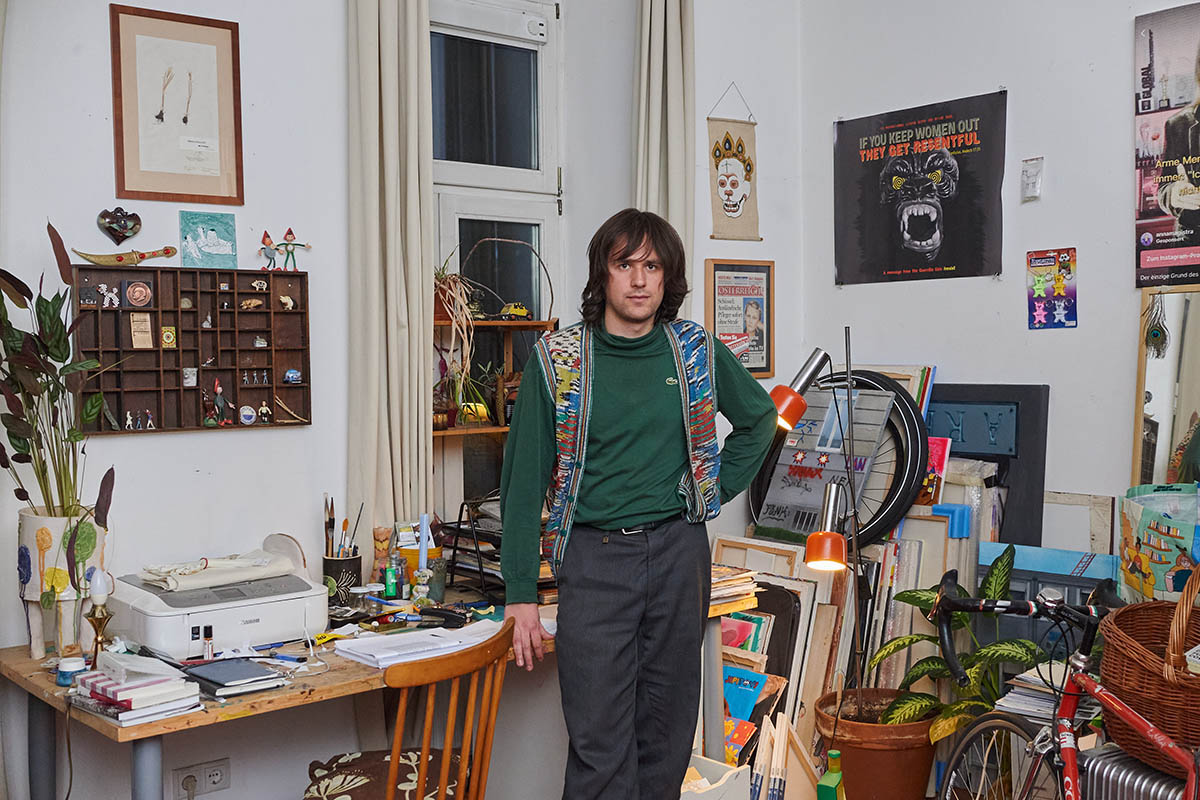
We are sitting here in Felix Schwentner’s apartment in Vienna’s 8th district, and it’s around 6 p.m. now. We try to recapture some of the moments that made him fall in love with art and different media.
Felix, tell us something about you. Where did you grow up? Can you remember your first contact with art?
I grew up in Graz in the south of Austria and lived there until almost a decade ago, when I moved to Vienna. I had the privilege to grow up in a family with a predominantly academic background and a great interest in art. My first contact with art is hard to trace back, but my grandfather, who has been a ceramic artist himself, has always been a great influence on me. He has produced ceramic figures alongside his job for a lot of years, and as a kid, I would often draw with him for hours. How did you decide to study art? It actually did not come to me for a long time, although I was pretty much making art my whole life. When I moved to Vienna, I studied landscape architecture at the University of Natural Resources and Life Sciences (BOKU), and only after a few years did I realize that I wanted to dedicate way more time to art. Not wanting to study art probably came with the urge to study something proper and not become a „brotloser Künstler“—an image that discouraged me.
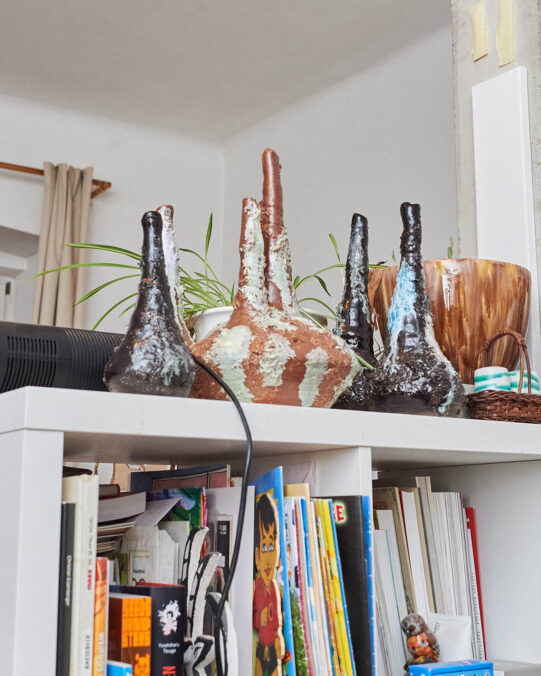
Felix Schwentner. Photo: Daniel Lichterwaldt 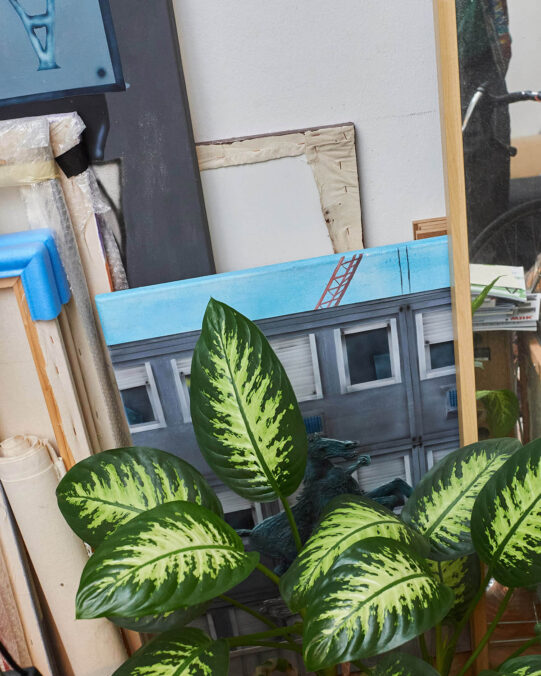
Felix Schwentner. Photo: Daniel Lichterwaldt 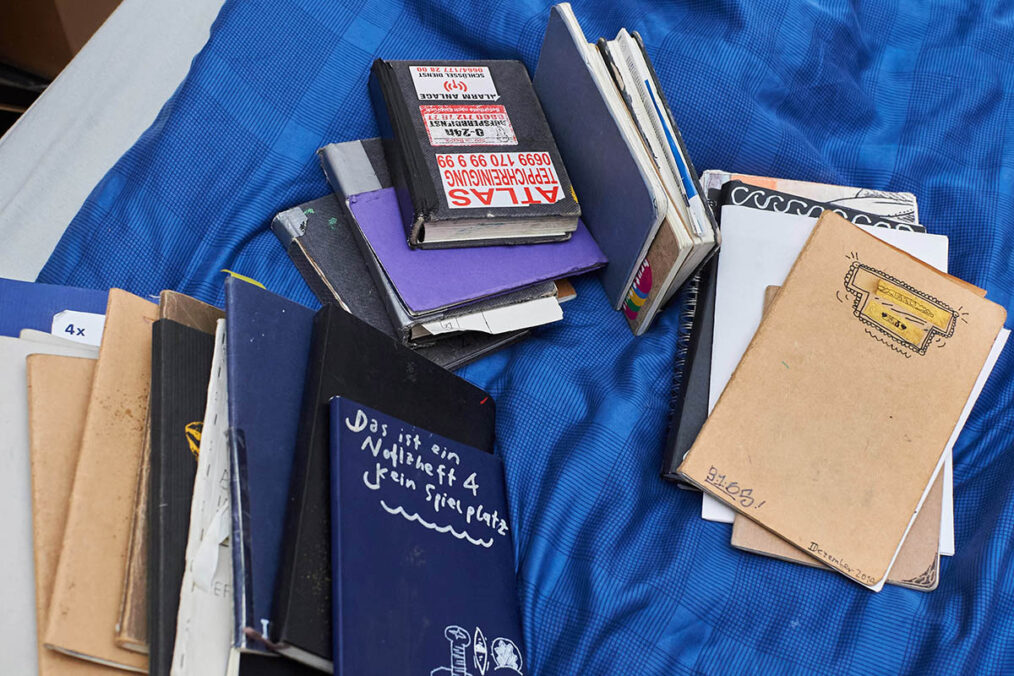
Felix Schwentner. Photo: Daniel Lichterwaldt
Which materials or mediums do you prefer for your work?
During my studies at BOKU I have been working with drawing, painting, and screen printing, and I was tattooing my drawings on friends. I have much more time and resources at the University of Applied Arts now and have also enlarged my horizons with respect to media. Since a few years, I have been working a lot with ceramics, and last year I presented my first solo performance in Vienna, which concluded with a video work. I am having a hard time staying with one medium, and I also don´t see a reason to do so. On the other hand, I find it very enriching to have this kind of toolbox that one can use depending on the context. However, drawing has always accompanied my artistic practice.
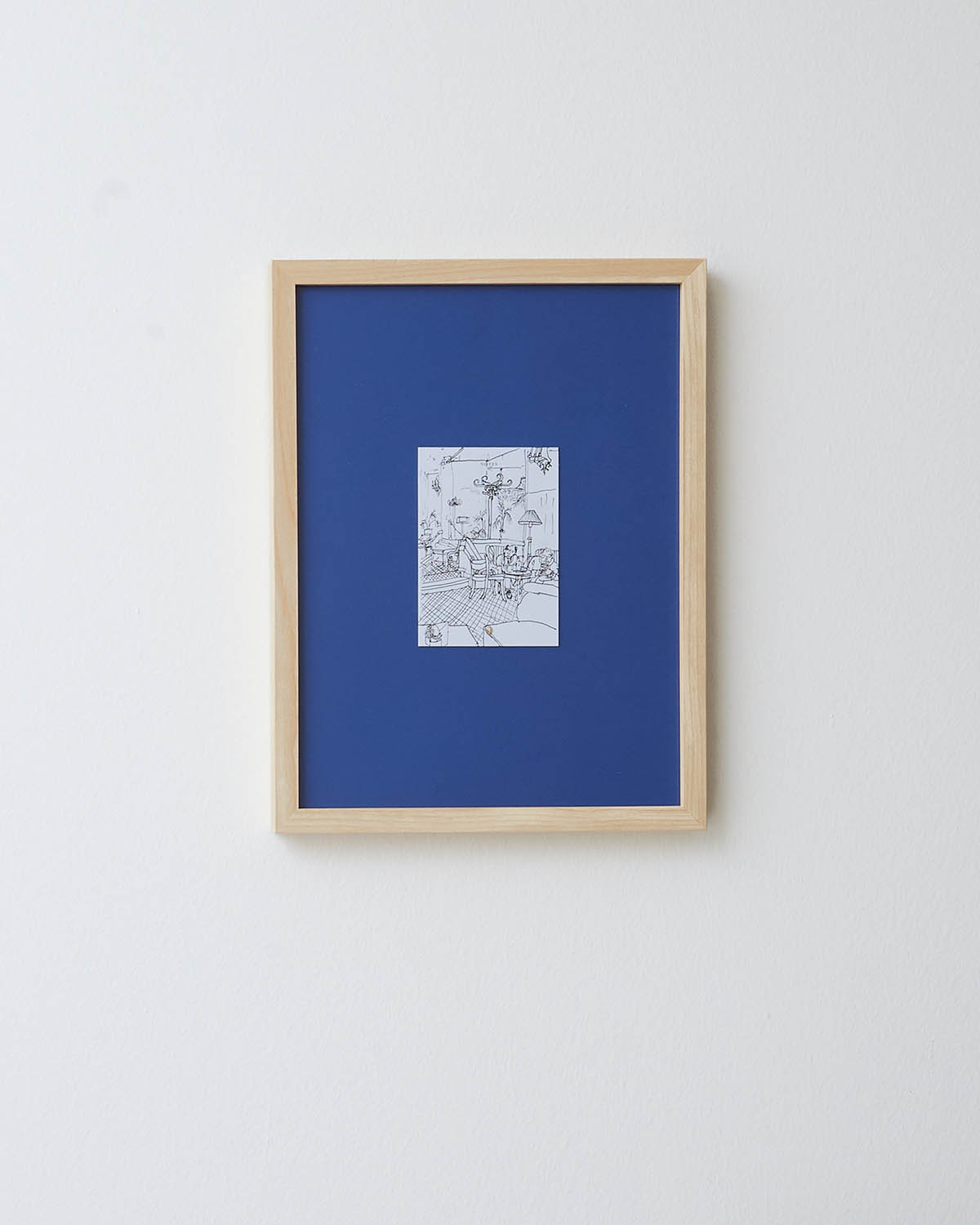
How many sketchbooks do you have?
I have around 50 sketchbooks lying on my shelf, and they are getting more and more as I always have to carry on with me. They act as a kind of diary, in the form of drawings but also small writings. Mostly to capture thoughts, ideas, and situations. Often, I am also just drawing to pass the time, especially when I am traveling.
What is your perspective on the role of art in society?
That’s a good question, but it’s tough to answer in a few sentences. For me, art is mostly like a mechanism that can test principles and visions in society and make them visible. Many people perceive it as decadent or obscene, and I think in this position also lies a lot of its strength. It is also really powerful because, compared to science, it is bound to have way fewer rules. I find the concept of artistic research, which has had a great boom in the last few years, also extremely interesting in the sense of this freedom.
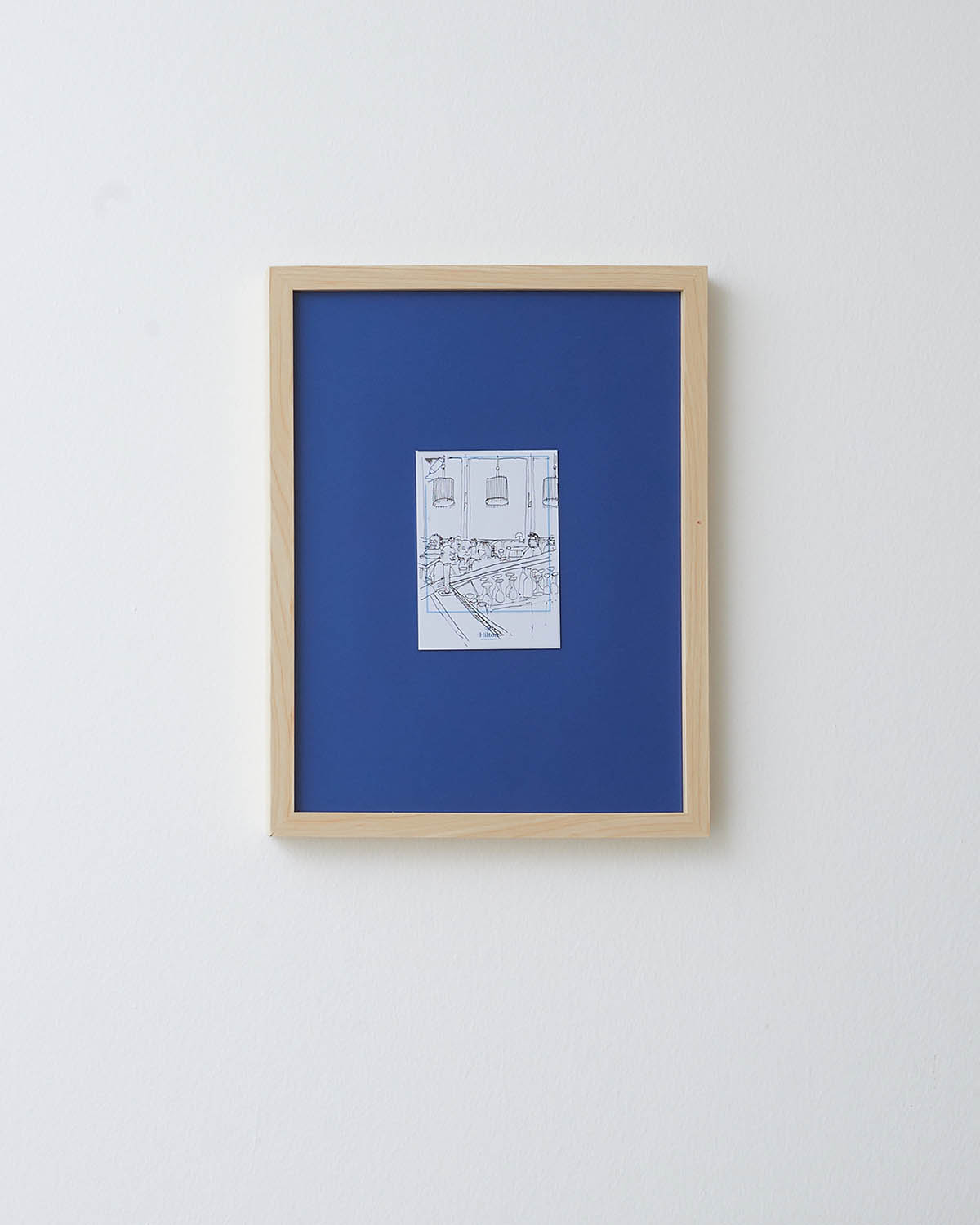
Felix Schwentner. Photo: Daniel Lichterwaldt 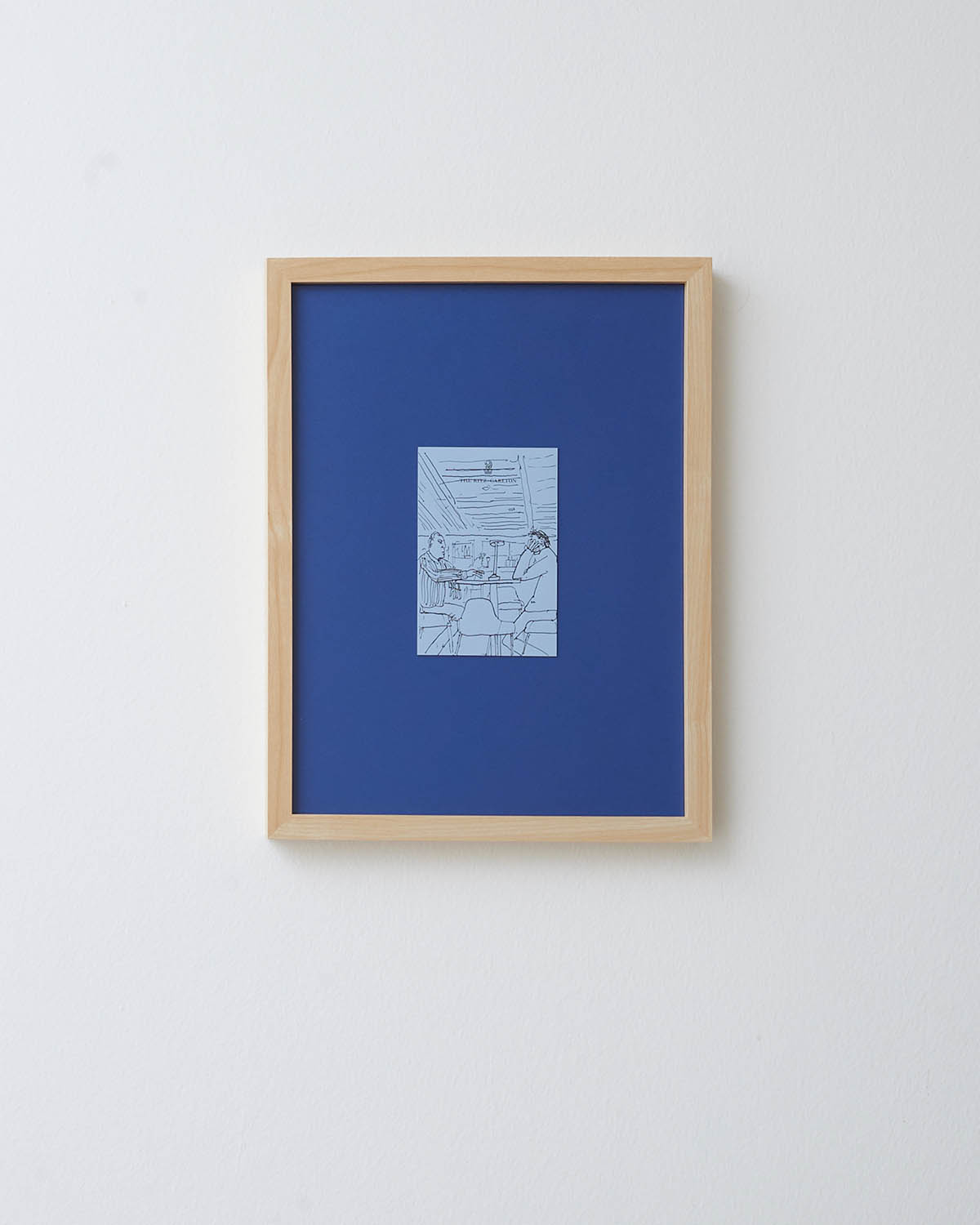
Felix Schwentner. Photo: Daniel Lichterwaldt
Can you also tell us a bit more about your performance?
Sure. I think it also connects well with the role of art, especially the role of artists in society. The piece I made was about a young, up-and-coming Barista Artist. I was making coffee with latte art while I was kind of tantrically repeating positive affirmations that came from a speaker. They were sentences like „I trust the process“ or „I believe that my art is worth being created by my hands and soul.“I wanted to thematize my own position as a young artist in a competition-driven and market-oriented art world and make fun of these esoteric strategies a lot of people seem to practice to counter neoliberalism. Also, I know a lot of young artists in my surroundings who have so much doubt in their own practice and wanted to empathize with the bias I am observing. People feel the urge to make art but at the same time question its necessity and are thinking of quitting.
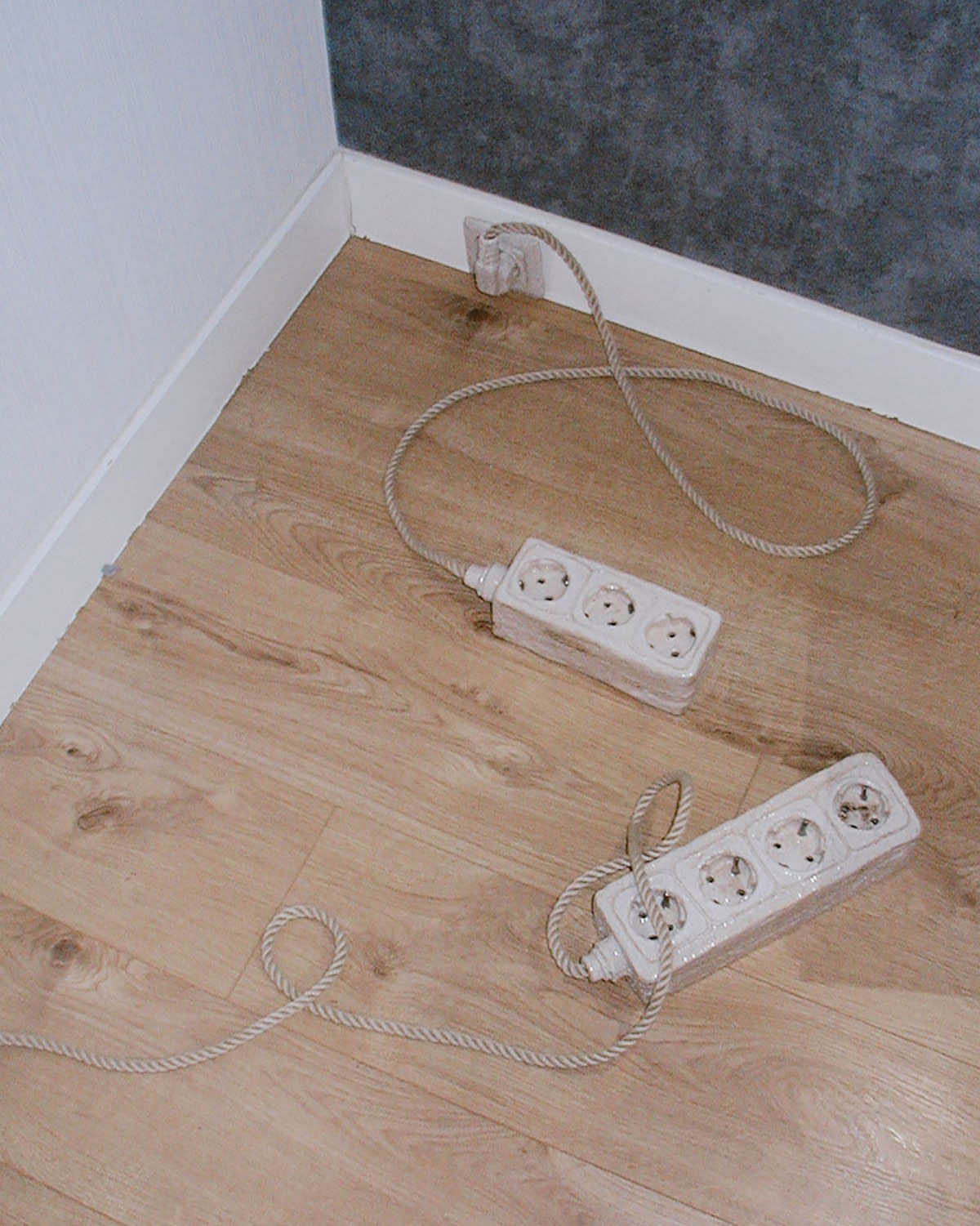
It is, of course, important to note that a lot of people simply cannot afford to make art in terms of time and money, and it is a pity that this drastically narrows access to the art world. Also, I don´t want to suggest that a little self-reflection is bad, but I feel like art is something you need to have trust in, which for me makes it a matter of belief! Not in the sense of „trust the process and you will become rich“ (haha). I myself honestly believe that art has a subversive power, and it is exciting while at the same time making me nervous to never know what its ultimate effect is.
Felix Schwentner – www.instagram.com/f_fledermaus/
Note: This text is part of our WallArt Journal #1, which we specially produced for the Hybrid Art Fair 2024 in Madrid. You can find copies around Vienna, or if you want to have one, feel free to contact us.
Les Nouveaux Riches, in collaboration with PARALLEL VIENNA and with the support of the Austrian Cultural Forum in Madrid, presents a group exhibition featuring four artists at the Hybrid Art Fair 2024 in Madrid: Alessandro Albrecht, Carli Fridolin Biller, Felix Schwentner, and Nina McNab.




